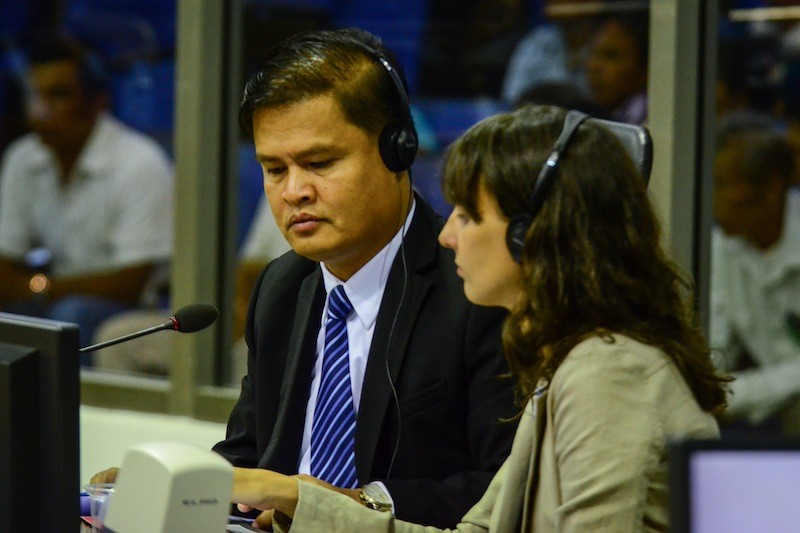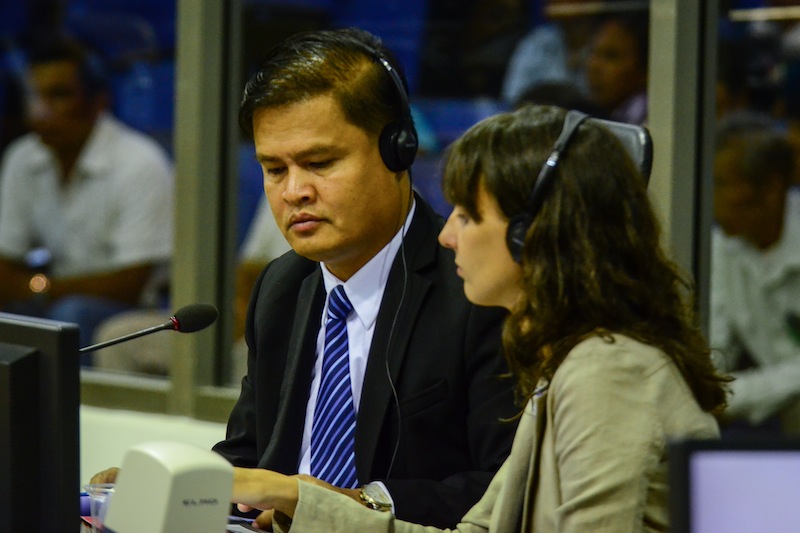Author Ysa Osman told the Khmer Rouge tribunal on Wednesday that while the names of current government officials had come up in interviews for his two books about Cham Muslims, he did not include them in the text. He attributed the omissions to a lack of evidence linking the officials to crimes committed against the ethnic group, rather than a fear of repercussions.
Mr. Osman faced questions from the lawyers for Nuon Chea and Khieu Samphan—who are on trial for charges including genocide in phase two of Case 002—about the methodology he employed while researching Cham rebellions in what are now Kompong Cham and Tbong Khmum provinces.

According to a recent Human Rights Watch report, Khmer Rouge units under the command of Prime Minister Hun Sen, National Assembly President Heng Samrin and CPP Senator Ouk Bunchhoeun were involved in suppressing the uprisings.
“It seems that you did not wish to write down in your book, or give testimony today, on who could be…behind the crimes,” Victor Koppe, a lawyer for Nuon Chea, said to Mr. Osman. “Are you afraid to do so?”
“I do not have the fear to do so, but my research has its limits,” the author responded, explaining that the names of certain senior government officials were mentioned by people he interviewed for his books but that he never obtained evidence tying them to the events he had written about.
Declining to name names, Mr. Osman added that his requests to interview government officials had been ignored.
Conceding that it was a “delicate, sensitive subject,” Mr. Koppe pressed him on whether he thought Mr. Hun Sen, Mr. Samrin and Mr. Bunchhoeun were responsible for crimes against humanity committed against the Cham.
“I would like not to answer your question, particularly in relation to individuals who used to be working in Sector 21,” Mr. Osman said, referring to the area that became Kompong Cham and Tbong Khmum.
After deliberating with the tribunal’s other judges, Trial Chamber President Nil Nonn said the author had to answer the question if it fell within his field of expertise.
“None of the people that I interviewed expressly mentioned any of those names,” Mr. Osman said. “They made indirect reference that they were part of the leadership of Sector 21.”
He then asked Mr. Koppe why he didn’t call the officials to testify before the court himself.
“That is my favorite hobby, asking [Heng Samrin] to be summoned,” Mr. Koppe replied with a smile.
The testimony of Mr. Osman, who is also an analyst in the court’s Office of the Co-Investigating Judges, is due to conclude today.




